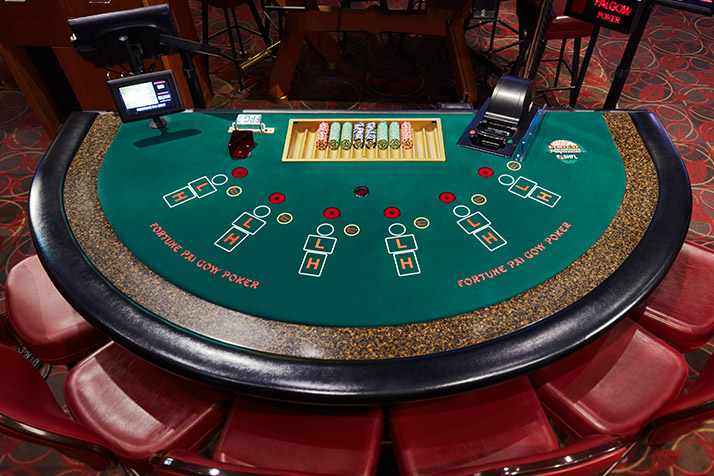Casino games have long been a captivating entertainment option, drawing millions of players from diverse cultures around the globe. From the opulent casinos of Las Vegas to the bustling gambling halls of Macau, these games serve as a bridge that brings together people across a variety of backgrounds. The allure of chance, skill, and risk entices not only those hoping to win money but also those in search of a feeling of belonging.
The significance of casino games extends significantly past the gaming floor. They often embody the social norms and principles of the societies in which they thrive. Games such as poker, 21, and the wheel game have woven themselves into the tapestry of mainstream culture, influencing multiple fields from movies to style. As we explore this captivating intersection of gambling and life, we can better understand how casino games shape and are shaped by the world around us.
Historical Evolution of Gaming Activities
The roots of casino games can be followed back to historical civilizations, where gambling in multiple forms was widely performed. In the East, around 2300 B.C., a type of lottery known as Keno was popular, while in historic Rome, soldiers would regularly wager on the outcomes of their contests. The idea of using randomness for amusement and gain progressed over the ages, leading to the creation of more formal games. By the end of the Middle Ages, betting houses started to emerge in Europe, notably in the Italian peninsula, which introduced early versions of well-liked games still enjoyed today.
As gambling expanded fame in Europe, the 17th and 18th centuries saw the rise of gambling establishments as exclusive establishments for gaming. The earliest official gaming venue, the Ridotto, was founded in the Venetian city in 1638, providing games like Baccarat and Faro games. This time marked a significant shifting point, as gaming venues commenced to attract not just the high society but also the burgeoning middle class. The sophistication of activities evolved, leading to the creation of new rules and variations that enhanced the play experience.
In the 19th century, the era of industrialization and changes in social conventions further altered the landscape of gambling activities. The arrival of the game of roulette and contemporary gaming machines pulled in a more diverse crowd, and casinos became seen as legitimate recreation. This era witnessed the worldwide proliferation of casino activities, as gambling houses expanded from European nations to the Americas, culminating in the establishment of the iconic Strip of Las Vegas in the 1900s. The evolution of casino activities has persisted into the present day, integrating technology and digital sites, allowing them available to a worldwide market.
### Cultural Importance within Different Cultures
Casino games have significant social importance across a multitude of cultures throughout the world. In Las Vegas, the very core of the urban landscape is woven around gambling establishments, where playing is not just a recreational activity but a central aspect of entertainment and social interaction. The vivid lights and vibrant atmosphere attract countless individuals, showcasing how gambling activities can shape local financial landscapes and local cultures. This surrounding transforms the notion of recreation into an engaging experience that influences style, music, and even cinema.
On the other hand, some societies treat gambling with more caution, viewing it through the lens of ethical considerations and customs. A case in point, in many Oriental communities, games like Mahjongg and Pai Gow Gambling are full of history and carry significant social relevance. These games are often played during gatherings and festivities, fostering social ties and strengthening familial ties. The act of engaging in these games goes beyond mere leisure, reflecting values such as deference to seniors and the value of shared enjoyment.

Simultaneously, in European countries such as Monte Carlo and Rome, games of chance serve as symbols of opulence and elegance. 188bet The stylish atmosphere of these establishments attracts both tourists and locals, maintaining a sense of status and rarity. The art of poker and the strategic elements of games like the game of baccarat are esteemed, influencing social dynamics and establishing an appeal that enthralls a diverse audience. This highlights how games of chance can concurrently reflect and shape cultural attitudes towards risk, reward, and relationship building.
Economic Impact and Travel Industry
Casino games play a significant role in the economic landscape of many regions, particularly those that rely heavily on visitor traffic. The revenue generated from casino operations fuels local economies, creating employment opportunities not only within the casinos themselves but also in connected industries such as hospitality, restaurant services, and recreation. This surge of tourists, drawn by the allure of games and the overall casino experience, stimulates spending across multiple businesses, contributing to the economic health of the region.
The existence of casinos often leads to the construction of facilities, including hotels, transportation systems, and recreational facilities. These developments are essential in improving the overall tourist experience, making locations more attractive to visitors. Additionally, many casinos invest in local communities through support of events and charitable activities, further integrating themselves into the community structure of the region. Such contribution not only supports economic growth but also fosters a positive image of the casino industry.
Furthermore, the worldwide appeal of casino games drives tourism competition, with regions vying to attract players from around the world. Iconic destinations like Las Vegas and Macau have become synonymous with casino culture, drawing millions annually. This competitive edge encourages innovation and diversification within the gaming industry, influencing trends in leisure and accommodation that resonate beyond their borders. The ripple effects of this visitor influx extend wide, impacting local economies and cultural interactions on a worldwide scale.
